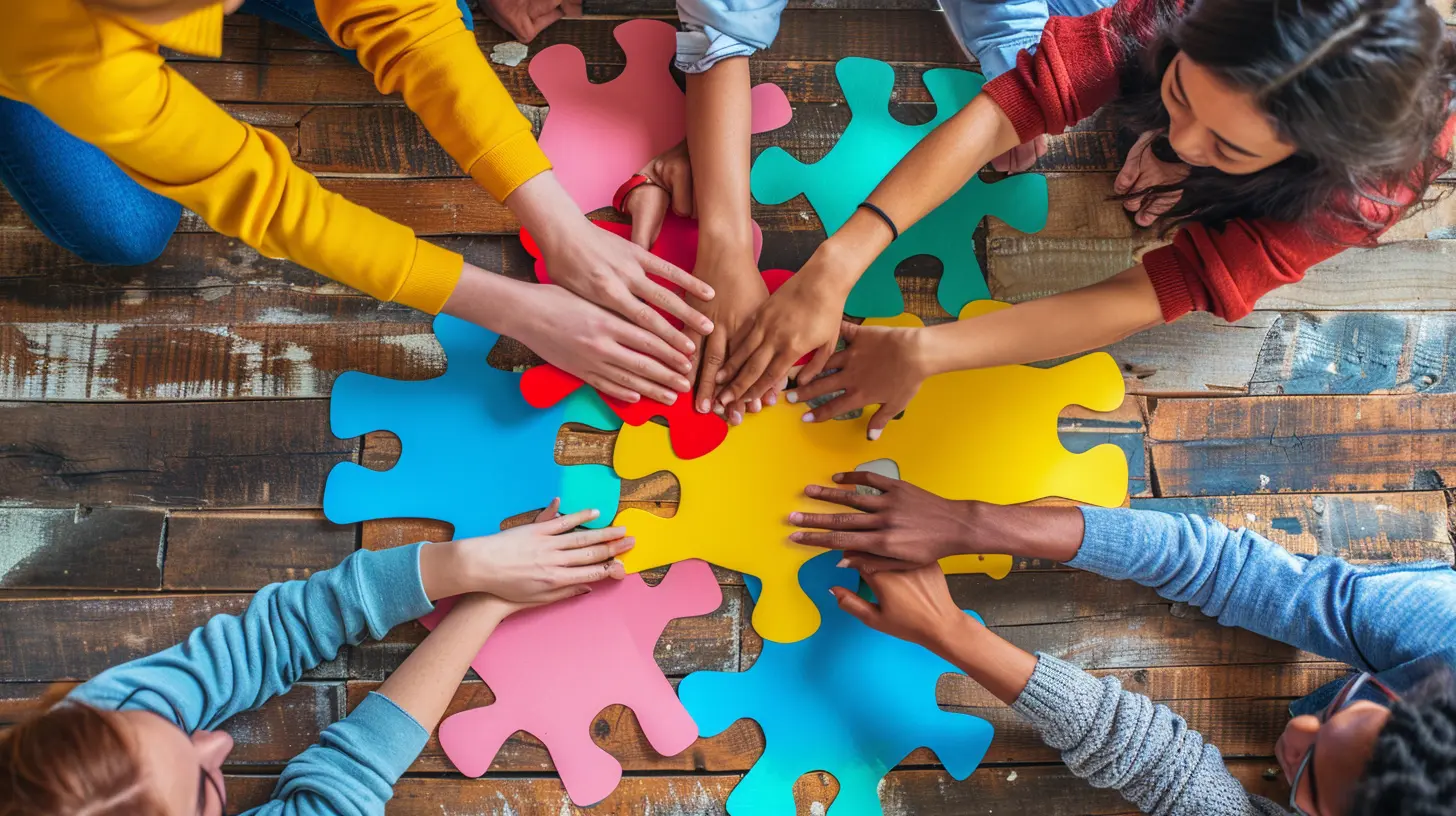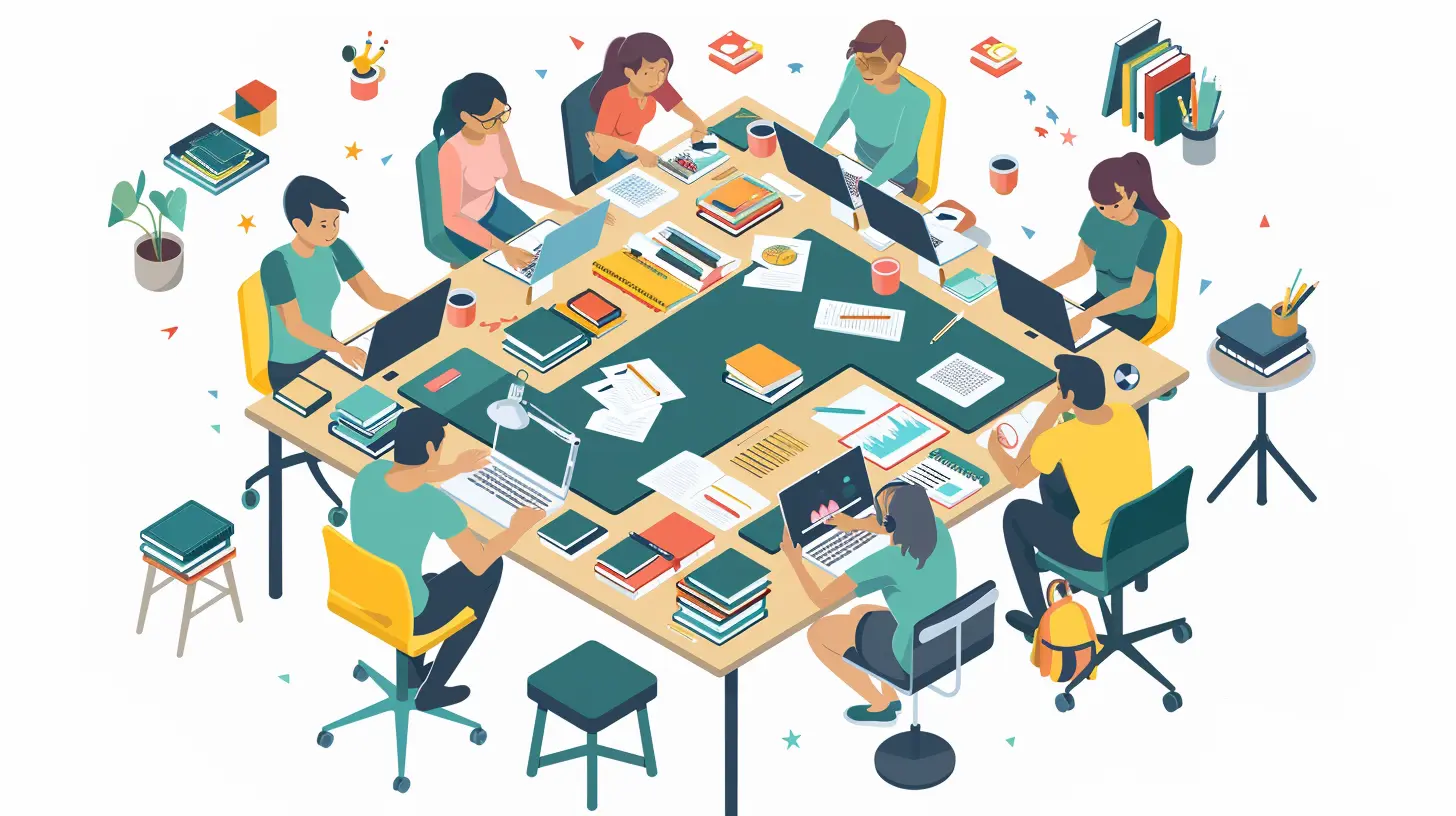How Group Learning Promotes Accountability and Responsibility
28 June 2025
Education is more than just textbooks and tests—it’s a journey of growth, collaboration, and personal development. One of the most significant aspects of learning is how we engage with others, and group learning plays a powerful role in shaping not just academic skills but also life skills. Among those, accountability and responsibility stand tall as pillars of success.
But how does working in a group foster these crucial traits? Let’s dive into the magic of teamwork and uncover how learning together strengthens our sense of duty and ownership.
The Power of Group Learning: More Than Just Sharing Notes
Imagine you're on a rowing team. If one person stops paddling, the entire boat slows down. That’s exactly how group learning works! Everyone has a role, and when one falls behind, the whole team feels it. This dynamic naturally builds accountability because every member realizes that their contribution—or lack thereof—affects the outcome.When students collaborate, they develop a sense of responsibility, not just for their own success but for their peers as well. It’s not about just passing a test anymore; it’s about showing up, pulling your weight, and making sure no one is left behind.
Accountability: Owning Up to Your Role
1. Peer Pressure—But in a Good Way
Let’s be honest—no one wants to be the person who lets the team down. In a group learning environment, there’s a natural pressure to show up prepared. Unlike solo studying, where procrastination might only hurt you, in a group, slacking off impacts others. This positive peer pressure nudges students to step up and take responsibility for their part.2. Clear Roles, Clear Expectations
Group work thrives on structure. Assigning specific roles—like a researcher, note-taker, or presenter—gives every student clarity on what’s expected from them. With this setup, no one can hide in the shadows. If you don’t complete your task, it’s obvious, and that sense of responsibility kicks in.3. Honest Feedback and Self-Reflection
When working alone, it’s easy to overlook mistakes. But in a group, accountability is built through constructive criticism. Peers provide feedback, which forces reflection and improvement. No one wants to repeatedly hear, "Hey, you didn’t contribute much." This cycle of feedback fosters a habit of taking responsibility for one’s actions and learning from mistakes.
Responsibility: The Backbone of Success
1. Learning to Trust and Be Trusted
Responsibility in group learning isn’t just about doing your job—it’s also about trusting others to do theirs. When students divide tasks, they rely on each other to follow through. This trust strengthens their sense of duty because no one wants to break the chain.2. Time Management Like a Pro
Deadlines in group projects aren’t just individual goals; they’re commitments. Missing a deadline means someone else has to pick up the slack. This realization pushes students to manage their time wisely, an essential skill that benefits them far beyond the classroom.3. Problem-Solving as a Team
Disagreements and challenges are inevitable in group learning. Maybe one person isn’t pulling their weight, or two members have conflicting ideas. Handling these situations teaches students how to navigate responsibility—not just by doing their part but by addressing issues maturely and collaboratively.
The Ripple Effect: Life Skills Beyond the Classroom
Group learning doesn’t just enhance academic performance—it shapes individuals into accountable and responsible adults. Consider these real-world benefits:- Workplace Readiness: Companies thrive on teamwork. Employees who have mastered accountability and responsibility in school adjust more easily to collaborative projects at work.
- Stronger Relationships: Whether in friendships or family, responsibility ensures trust and reliability in personal connections.
- Leadership Development: Many of tomorrow’s leaders are shaped through the simple acts of taking ownership in group settings today.
The lessons learned in study groups, classroom discussions, and group projects become stepping stones for future success.
Overcoming Challenges in Group Learning
Of course, group learning isn’t always smooth sailing. Some members may be more committed than others. Conflicts may arise. But rather than seeing these as setbacks, they should be viewed as opportunities for learning.1. Handling Unequal Contributions
It’s frustrating when one person does all the work while others coast along. A simple fix? Set expectations from day one. Establish an agreement where everyone is accountable for specific tasks. If issues persist, open discussions (or even teacher intervention) can help balance the workload.2. Navigating Conflicts
Disagreements are natural, but they don’t have to derail the learning process. Encouraging open communication and compromise teaches students valuable conflict-resolution skills.3. Encouraging Participation from All Members
Not everyone is vocal in a group setting. Encouraging quieter members by assigning them specific responsibilities can ensure that every voice is heard and valued.Final Thoughts: A Lesson Beyond Academics
At its core, group learning is not just about sharing knowledge—it’s about shaping character. It teaches students that their actions affect others, that commitment matters, and that being accountable isn’t just a school lesson but a life lesson.So, the next time you find yourself in a study group or a classroom discussion, remember: you’re not just learning about history or science. You’re building the foundation of responsibility and accountability—skills that will carry you far beyond the classroom walls.
### What’s stopping you from embracing group learning today?
all images in this post were generated using AI tools
Category:
Collaborative LearningAuthor:

Bethany Hudson
Discussion
rate this article
1 comments
Morrow Malone
Group learning: where you can’t just ‘wing it’—your teammates are watching! It’s like a team sport, but instead of scoring goals, you score knowledge (and accountability). Game on!
July 19, 2025 at 10:23 AM

Bethany Hudson
Absolutely! Group learning fosters accountability by encouraging collaboration and shared goals, turning knowledge acquisition into a team effort. Let’s keep the momentum going!


